Lancashire 2050: county lays out eight priorities in long-term vision for its people and prosperity as part of latest devolution push
and live on Freeview channel 276
Lancashire’s council leaders will be joined by representatives from business and academia – as well as the region’s MPs – for the launch of the “Lancashire 2050 Framework”.
The document sets out the challenges and opportunities facing the county in eight key areas – including the economy, housing and transport – and what needs to be done to address and harness them.
Advertisement
Hide AdAdvertisement
Hide AdIt has been published to coincide with a gathering being hosted in the state rooms of Commons Speaker and Chorley MP Sir Lindsay Hoyle, which is intended as an early celebration of the annual Lancashire Day this Sunday – and a way to show off the county’s prowess and potential on the national stage.
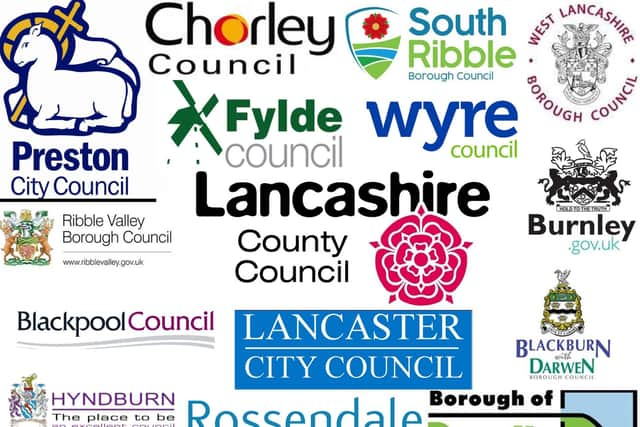

However, the event is also being seen as a chance to buttonhole the big-hitters in government and make the case for Lancashire finally to secure the additional powers and cash that come with doing a devolution deal with ministers.
The path towards that destination has been tortuous – and often torturous – in the seven years since Lancashire took its first tentative steps in the direction of a devolution agreement that was always going to be challenged by having to satisfy the county’s many constituent parts and also the demands of the government of the day.
The requirement for devolved arrangements to be accompanied, at various different times, by an elected mayor, a new combined authority and even the abolition of all of the county’s existing councils – moves which have all proved politically controversial – has left Lancashire chasing what sometimes felt like a dream that it was destined to be forever denied.
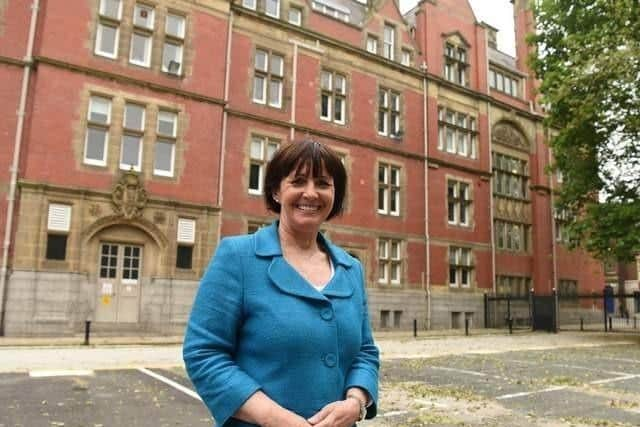

Advertisement
Hide AdAdvertisement
Hide AdJust as sticking points between local authorities themselves were overcome, the government’s goalposts seemed to move and the county’s politicians found themselves back at square one.
All the while, neighbouring areas – and economic competitors – like Greater Manchester and the Liverpool City Region powered ahead down that devolution path, a status that often enabled them to snaffle pots of money for which Lancashire did not even get a look-in.
Earlier this year, the stars finally looked like they were set to align for Lancashire after all 15 council areas agreed the basis on which to pursue a bespoke “county deal”, an option put on the table by the government precisely to speed up devolution in places where it had been difficult to achieve.
But just a month after the county published its ambitious £5.6bn proposal, it failed to make a list of nine areas unveiled by the government as being next in line for devolved power.
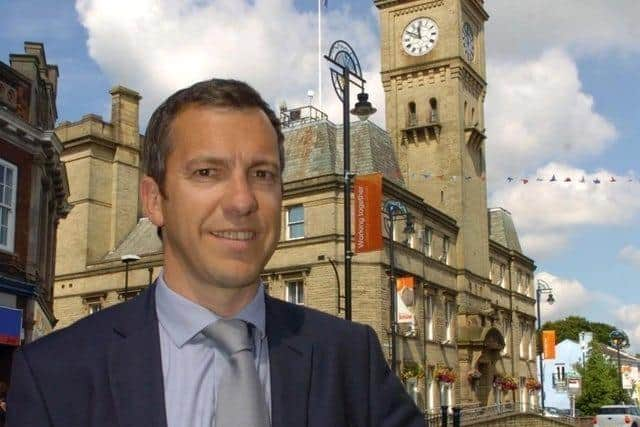

Advertisement
Hide AdAdvertisement
Hide AdLittle wonder, perhaps, that the county’s politicians are stressing that they want to pursue their Lancashire 2050 ambitions irrespective of when – or whether – devolution finally comes calling.
Nevertheless, Lancashire County Council leader Phillippa Williamson – speaking to the Local Democracy Reporting Service (LDRS) before today’s trip to London – acknowledged the hope that the plan will strengthen the region’s hand in any future negotiations with ministers.
“It’s a really important piece of work for us to do regardless. But any opportunities that we might get to bring [extra] resources and support or powers into the county would enable us to deliver this plan quicker.
“[We see] the 2050 plan as a really good vehicle for us not only doing some good things now, but for selling what we can do in the future.
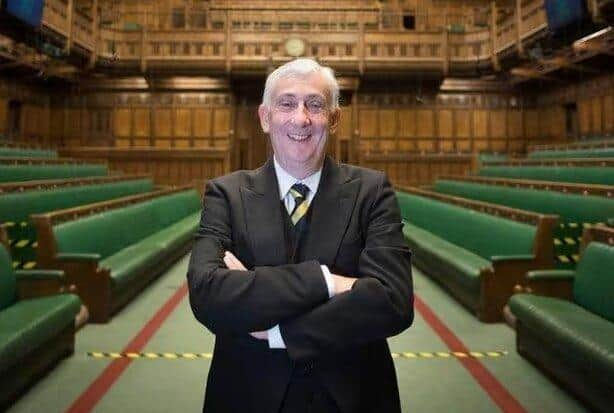

Advertisement
Hide AdAdvertisement
Hide Ad“The work that we have been doing on all of this – and there is loads of evidence behind it all – [also] really helps when an initiative comes from government or an approach comes from a partner [who wants to] do something.
“We’ve got all of [the necessary] information now and we’ve tested our abilities to react to those kinds of approaches and know it works, because…we know the evidence that can help us put our case,” County Cllr Williamson said.
Amongst the priorities set out in the framework are ambitions to make the most of existing and growing sectors within the Lancashire economy, like low-carbon and renewable energy technologies.
There are also aims to ensure that the county retains more of its graduates, provides better transport connections and improves the quality of its housing stock as a way of attracting and retaining workers.
Advertisement
Hide AdAdvertisement
Hide AdSpeaking on behalf of the 12 district authorities in the county, Chorley Council leader Alistair Bradley admitted that much of the plan was a statement of “the blindingly obvious” – but he also regards that simplicity as a strength, because of its capacity to keep Lancashire’s leaders on the same page.
“It wasn’t that we sat down and came up with 20 different [ideas] each – 18 or 19 were all the same things which are in this document. The one or two things that were a bit ‘out there’ probably aren’t [included], because we weren’t going to agree on [them].
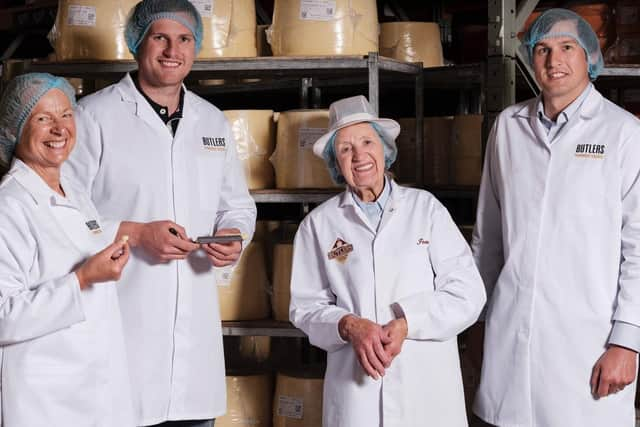

“It’s common sense, a lot of it – it’s just articulating that, particularly to the government, and also to our residents. They want reassurance that their concerns and their priorities are our concerns and priorities.
“We have [had] grown-up and mature, adult discussions about what is important. Some things are [deemed] more important in certain areas – [for instance], housing issues in Blackpool, the issues around the universities in Preston and Lancaster and some of the community issues in East Lancashire.
Advertisement
Hide AdAdvertisement
Hide Ad“I think what we have now is an understanding of each other’s positions far better – and we have, in a way, [put] our own personal priorities [to one side]…to try and get this wider articulation of what we need to see happen.
“Everybody has to accept that and, at the same time, still keep making the case for their priorities, because that’s important. The more we do stuff together, the better it will work, because you build that trust and that delivery experience,” Cllr Bradley said.
Phil Riley, leader of Blackburn with Darwen Council – one of two standalone Lancashire authorities in the county, along with Blackpool – said that the plan was as “non-political” as any document produced by politicians could be.
“I think you’d have to work hard, as a leader in Lancashire, not to agree with it. We’d be really disappointed if there was any authority that can’t wholeheartedly agree with it, as it’s very common to us all.
Advertisement
Hide AdAdvertisement
Hide Ad“In any given circumstance [when] the government or any other body might say to us, ‘What is it you want?’, this gives us an absolutely wonderful chance to illustrate it. That’s the important point, [because] if people ask us and we sound like we’re not quite sure and we [say] ‘We’ll get back to you’, then it doesn’t strengthen the case,” Cllr Riley explained.
The county’s political leaders also hope that the plan they have forged can withstand the departures of any one of them – with every politician, of course, being in place only at the whim of the electorate and their own parties.
But by the same token, each council leader has had a stake in building up one or more of the priority areas upon which the Lancashire 2050 document is based – before all regrouping to “sense check” the work, as County Cllr Williamson describes it, ensuring that everybody remains in agreement and that it accords with the overarching principles they have established.
That is a level of co-operation that has not previously been commonplace in the county, save for the emergency situation generated by the pandemic.
Advertisement
Hide AdAdvertisement
Hide AdThe Lancashire 2050 framework posits that the county is now in a position to speak to the government with “one voice” when championing its needs. The unspoken part of that declaration appears to be that on issues where a single voice does not exist, it will be silence – rather than a public show of division – which fills the void.
The framework document itself perhaps offers a clue as to how that principle might work in practice in its commitment to becoming a “net-zero county, protecting our environment for our future generations”. While it sets out how that might be achieved, a suggested date for doing so – which has often been the focus of debates in individual council chambers in recent years – is absent.
A potential point of division is seemingly dodged with a pledge to pull in the same direction on the broader aspiration on which there is complete agreement.
Blackpool Council leader Lynn Williams said that the Lancashire 2050 document enabled the county to focus on “the things that are a priority for us all”, despite Lancashire’s “diverse geography”.
Advertisement
Hide AdAdvertisement
Hide AdShe added: “It is really important for us in Blackpool and for the county as a whole to be able to move forward with this plan for Lancashire.
“The launch of this framework is the first step and I very much look forward to working more closely with our colleagues across Lancashire on our shared common goals for the good of all of Lancashire’s residents.”
DESTINATION DEVOLUTION?
The LDRS understands that the county deal proposal put forward at the beginning of the year remains Lancashire’s proposition to the government for devolution.
That saw the county’s 15 leaders make an ambitious request for a £5.6bn package of cash and powers that would see some new money pumped into the county, along with local control over resources that were previously the preserve of Whitehall in areas including skills, housing, transport, the local economy and climate change.
Advertisement
Hide AdAdvertisement
Hide AdThe country deal aim remains intact in spite of Preston City Council subsequently calling for it to be made more ambitious – to equal the level of devolution handed to Greater Manchester and Merseyside – and Burnley Council expressing some concern over the potential governance arrangements for any deal.
County Cllr Williamson said she believes that Lancashire does have a strong identity on the national stage, in spite of the dearth of devolution in the county to date.
However, she is confident that the informal “face-to-face conversations” that can be had at today’s Westminster event, which takes place straight after Prime Minister’s Questions, will give a boost to future discussions.
County Cllr Williamson acknowledged that any shift within Rishi Sunak’s government which restored elected mayors and council reorganisation as pre-conditions of devolution would require Lancashire’s leaders to put their heads back together to come up with a new collective position.
Advertisement
Hide AdAdvertisement
Hide AdHowever, she stressed that the county could implement quite a lot of the Lancashire 2050 vision without any external help.
In the chancellor’s autumn statement last week, three new devolution deals were announced – all of them involving the formation of mayoral combined authorities, a prospect which has caused many Lancashire districts to baulk in the past.
Although the idea of the Lancashire Day event might be to court the government, Cllr Bradley – speaking before the chancellor’s statement – said that local leaders also needed to be “firm”.
“My approach is…to say ‘You’re not going to get agreement on something that people don’t want in Lancashire’.
Advertisement
Hide AdAdvertisement
Hide Ad“So if they’re serious about devolving powers and monies to local areas…why should they be disadvantaging Lancashire residents by not allowing us to do that?
“We’ve got to challenge them and ask what’s wrong with the plan that we have. Because, to us, it’s fully coherent.”
Asked whether Lancashire needed to catch up with areas that secured devolution deals far sooner, Cllr Riley said that it was more a case of “getting started” – and not falling further behind.
“We’re surrounded by authorities in the North of England who…are getting advantages ahead of Lancashire.
Advertisement
Hide AdAdvertisement
Hide Ad“We can’t now wave a magic wand and say to any government, ‘Would you give to us all the things we would have had if we had done lots of things [differently] in the last 10 years?’
“Lancashire is a very large part of the economy in the North. It’s not to anybody’s advantage for Lancashire’s economy not to develop in the way that it should do.
“So we have to find a way out of this – and we would like to hope that the government would want to help us find a way out of it.”
LOOK WHAT LANCASHIRE HAS TO OFFER
A host of exhibitors will be shouting about Lancashire’s wares in various sectors at the county-themed gathering in Westminster – including its three universities, representatives of the advanced manufacturing research centre at Samlesbury and innovative “electech” businesses, like Lancaster-based LiNa Energy.
Advertisement
Hide AdAdvertisement
Hide AdThe firm’s cutting-edge battery technology is designed to meet the rapidly-growing need for sustainable and low-cost energy storage – and help the world achieve its ambition of getting to net-zero carbon sooner.
LiNa, which was formed in 2017 as a spin-out from Lancaster University, now employs 30 people in the city and is focused on commercialising high-performance sodium batteries which are safer, more sustainable and less than half the cost of their lithium-ion counterparts.
Founding chief technology officer Dr. Rich Dawson will be talking at the Lancashire Day event about the firm’s pioneering storage technology, which enables more renewable energy to be used when and where it is needed.
If the movers and shakers at Westminster are feeling peckish after being blinded with science, then Inglewhite-based Butlers Farmhouse Cheeses will be on hand to tempt their taste buds.
Advertisement
Hide AdAdvertisement
Hide AdMatthew Hall, the fourth-generation owner of the company, said he was proud to be exhibiting at the event in the 90th year of the family business.
“It’s an honour to represent all of Lancashire’s fantastic food and producers and celebrate the industry, innovation and community that makes our county so special,” he said.
“The renaissance of British cheese is really exciting – and we can’t wait for MPs at Westminster to sample some of our best-loved cheeses and join the farmhouse cheese family for Lancashire Day.”
Rachel McQueen, chief executive of Marketing Lancashire, told the LDRS that the aim this year was to use Lancashire Day “to generate as much profile as possible” for the county.
Advertisement
Hide AdAdvertisement
Hide Ad“Having just launched the new ‘Make our Lancashire your Lancashire’ campaign, promoting the county as a great place to live and work, we are also delighted to be supporting Lancashire’s local authorities to launch the Lancashire 2050 strategic framework at the Speaker’s rooms in London.
“This level of collaboration is key to achieving national recognition for Lancashire and the opportunities that we have to offer all across the county.”
THE “LANCASHIRE 2050” PRIORITIES
Economic prosperity
***To realise the growth potential in our existing and emerging key sectors, particularly low-carbon and renewables, and to attract increased investment.
***To ensure Lancashire has an outward-looking and connected economy that works for all.
Advertisement
Hide AdAdvertisement
Hide Ad***To build a pipeline of strategic development sites and infrastructure opportunities.
***To maximise the economic benefits of Lancashire’s tourism offer and promote a diverse place with urban, coastal and rural economies.
***To encourage business as good employers.
Transport and infrastructure
***To connect the economic clusters and sectors of Lancashire and tackle isolation.
***To take a place-focused approach to transport and infrastructure, which ensures that provision is designed to allow places to flourish.
Advertisement
Hide AdAdvertisement
Hide Ad***To reduce the need to travel by providing fast reliable access to digital technology.
***To reduce carbon emissions in support of a net zero county.
Early years and education
***To improve attainment for all children across the region, particularly in literacy and numeracy.
***To ensure vulnerable families get the help they need for their children to progress and achieve.
Advertisement
Hide AdAdvertisement
Hide Ad***To support vulnerable young people and families by removing barriers to learning and helping them access opportunity.
***To improve multi-agency working to make sure all our children have the best possible start in life.
Employment and skills
***To help young people make informed choices about their pathway into employment.
***To retain a higher percentage of local graduates and place them into graduate level jobs.
Advertisement
Hide AdAdvertisement
Hide Ad***To build a strong pipeline of skilled people at all levels entering the labour market to meet the needs of Lancashire businesses.
***To increase the proportion of adults in Lancashire achieving a Level 4 qualification or higher and improve access to tailored adult skills provision.
***To increase the employment rate to at least equal to any other region of the UK outside London and improve economic activity rates.
Environment and climate
***To substantially reduce carbon emissions and energy demand, with our approach to housing and transport helping secure that transition.
Advertisement
Hide AdAdvertisement
Hide Ad***To increase energy generation from low carbon sources, including renewables.
***To retain our rich biodiversity and natural environment.
Health and wellbeing
***To give our children the best start in life and support better choices.
***To improve quality of life and reduce health inequalities.
***To provide better opportunities to stay healthier for longer.
Advertisement
Hide AdAdvertisement
Hide Ad***To make sure public bodies properly join up their services to focus on Lancashire people’s needs.
Housing
***To improve and increase the availability of good quality housing – both on new sites and through existing stock.
***To link housing regeneration to economic and transport plans.
***To secure urban renewal by demolishing and replacing housing stock in some areas.
Advertisement
Hide AdAdvertisement
Hide Ad***To improve the attractiveness of the built environment of our communities.
Communities and place
***To foster a sense of pride and belonging in all our communities.
***To better join up public services so they deliver what people and places need.
***To work with residents, businesses and the voluntary, community, faith and social enterprise sector, to build the vision for our communities.
***To foster safer and more resilient neighbourhoods.
***To work together across the public, private and voluntary sectors to help tackle the long-term causes and short-term impacts of poverty.
Source: Lancashire 2050
